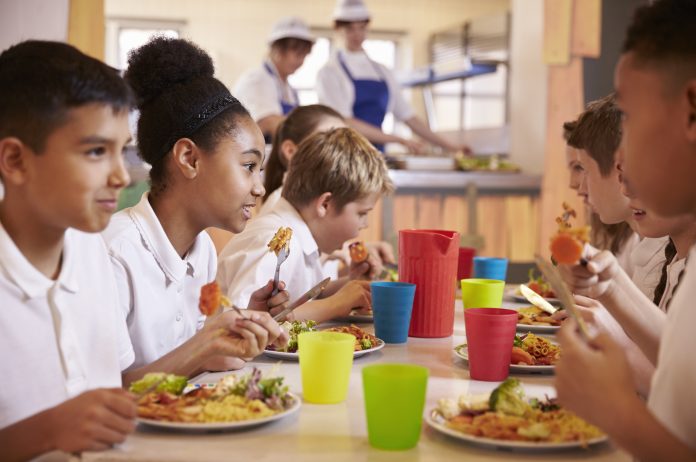UCL research shows free school meals can reduce hunger, cut emissions, support local farmers and drive economic growth
School meals are more than a safety net and are a powerful lever for economic growth, sustainable farming, and healthier communities, according to new research from UCL. By rethinking how governments design and procure school meal programs, policymakers can address child hunger, reduce greenhouse gas emissions, and create local jobs. Case studies from Scotland, Sweden, and Brazil reveal how this underused tool could reshape food systems and unlock a greener, more resilient future.
Improving access to nutritious meals for children
In a new report, “A Mission-Oriented Approach to School Meals: An opportunity for cross-departmental and multi-sector industrial strategy”, published by UCL Institute of Innovation and Public Purpose, researchers analysed how governments can use school meals procurement to encourage better farming practices, improve access to nutritious meals, and increase local economies.
The team’s analysis of case studies from Scotland, Sweden, and Brazil underscores the potential of school meals as a powerful economic tool and identifies the existing opportunities.
With around 466 million children benefiting from school meals and an annual expenditure of £62.2 billion, these programs hold immense potential for governments to shape the economy and drive sustainable transformation across food systems. This is not just a statistic, but a call to action for policymakers to harness this potential and bring about significant change.
The global food system, responsible for one-third of greenhouse gas emissions, is also the primary driver of biodiversity loss, ecosystem degradation, and land degradation. The current school meal procurement practices only serve to reinforce these problems. There is an urgent need for change, and school meals can be a part of the solution.
Redesigning school meals for maximum public value
The researchers urgently call for a redesign of school meal procurement to maximise public value. This involves designing procurement strategies that provide nutritious meals, encourage sustainable farming and good production practices, and increase participation from local producers.
Lead author, Professor Mariana Mazzucato (Founding Director, UCL Institute for Innovation and Public Purpose) said: “School meals are a tremendous opportunity for governments to use their purchasing power to promote the public good. By creating a market for school meals that are healthy, sustainable, tasty, and accessible, well-designed food procurement can transform the structure of local economies and lead to a more diverse, competitive, innovative, and values-aligned supplier pool. This kind of mission-oriented industrial strategy should be seen as an investment, not a cost.” This work builds on Professor Mazzucato’s wider work on mission-oriented frameworks.
How other countries use school meals
The report addresses Scotland’s school meals programme, which was first established in 2007 and has since been expanded twice to include all students between primary school years one and five. While tackling health and economic inequalities, the £238m/year programme could further boost local food markets and support Scotland’s net-zero and sustainability goals. Managed by 32 regional councils, better strategic coordination, aligned with Scotland’s industrial strategy, could unlock even greater social, environmental, and economic benefits from school meal policies.
Drawing on Sweden, the report highlights how a mission-oriented approach and student engagement can drive local innovation. However, strong national coordination remains crucial for aligning broader food system and industrial strategies.
In Brazil, the Programa Nacional de Alimentação Escolar (PNAE) now serves over 50 million meals daily, tackling child hunger, improving nutrition and education, and supporting family-run farms.
Recently, the programme has been linked to national industrial strategy goals for food and nutrition security. While largely local, national rules require at least 30% of funds to be allocated to family farmers and encourage sustainable sourcing, thereby boosting domestic production, creating jobs, increasing incomes, promoting market diversity, and facilitating the adoption of sustainable practices.
Co-author Policy Fellow Sarah Doyle (UCL Institute for Innovation & Public Purpose) said: “There is widespread agreement that school meals are good for kids. However, until they are also recognised as an opportunity for farmers and businesses, as well as for food system transformation, their potential won’t be fully realised, and they will continue to be underfunded. The global food system is failing to feed billions of people. It is also responsible for a third of global greenhouse gas emissions, is a major driver of ecological degradation and is facing declining productivity – challenges that will only intensify as the world’s population grows. As a tool of green industrial strategy, school meals procurement can create market opportunities that promote food system transformation and contribute to sustainable growth.”











